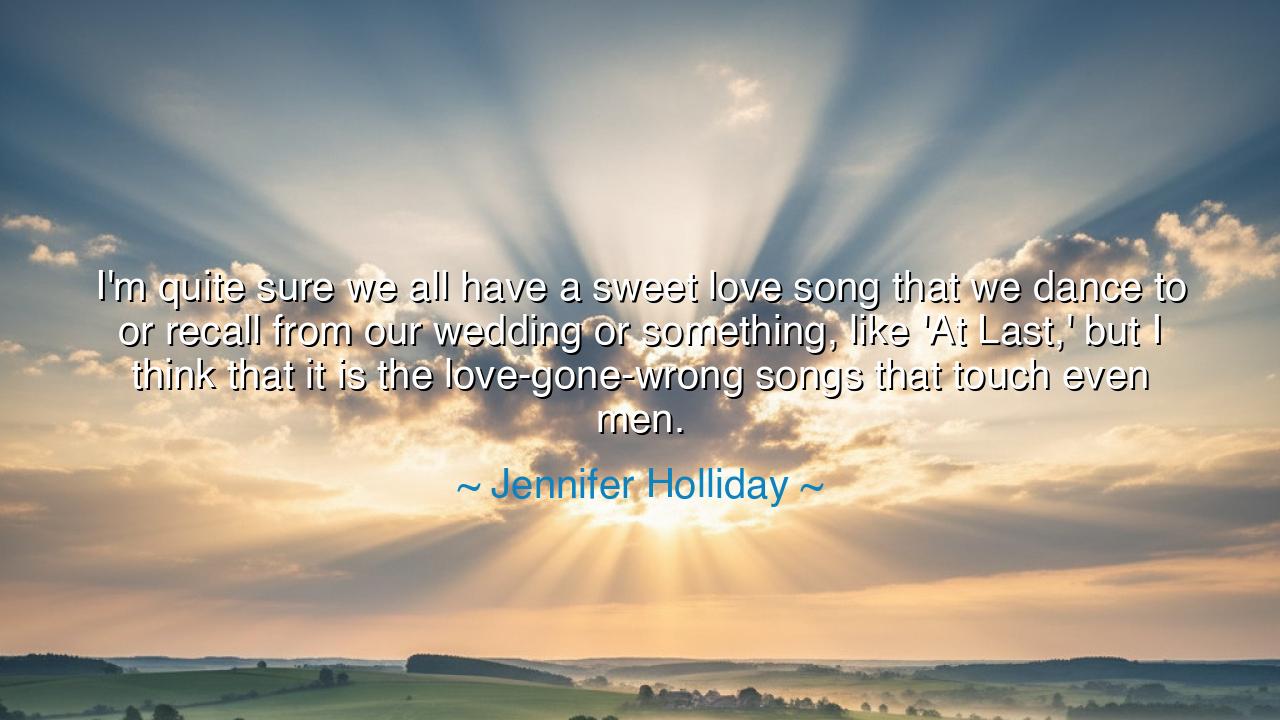
I'm quite sure we all have a sweet love song that we dance to or
I'm quite sure we all have a sweet love song that we dance to or recall from our wedding or something, like 'At Last,' but I think that it is the love-gone-wrong songs that touch even men.






In the words of Jennifer Holliday, we hear the duality of love’s music, both sweet and sorrowful. She speaks first of the love song, the melody to which couples dance, the tune that marks the joy of a wedding, like the timeless “At Last.” These songs are woven with light, carrying the fragrance of union, hope, and beginnings. Yet she reminds us that beyond these bright anthems, it is often the love-gone-wrong songs—the ballads of heartbreak and longing—that pierce most deeply, even into the hearts of men who hide their wounds.
The ancients knew that art born of sorrow carried a unique power. The Greeks told of Orpheus, who sang not only in joy but in grief, when he lost his beloved Eurydice to the underworld. His laments shook even Hades, proving that songs of loss possess the strength to stir gods and mortals alike. Holliday’s insight follows this same truth: that while joyous music celebrates, it is music of broken love that unearths the hidden tears of humanity.
Her words reveal also that suffering is universal. Where joy may be shared for a season, pain reaches into every soul, binding all who live in the human condition. The wedding song belongs to the couple who claim it, but the heartbreak song belongs to us all. In grief we find a strange equality, for no station or gender shields us from love’s unraveling. Thus, Holliday reminds us that the truest songs are not always the ones sung in triumph, but those that echo through the ruins of the heart.
History mirrors this in the works of Beethoven, who poured his anguish into sonatas and symphonies after unfulfilled loves. His music spoke not only of triumph but of longing, and it was the sorrowful passages that brought men to weep openly. In them they heard their own hidden battles, their own silences and regrets. So too does Holliday proclaim that these songs of love gone wrong carve through the defenses of even the proudest spirits.
Therefore, let it be remembered: joy’s music lifts us for a moment, but sorrow’s music teaches us endurance. The love song at a wedding may bless the beginning of a journey, but the songs of heartbreak remind us of the depth of love’s risk, and the cost of its loss. Both are needed, for together they form the full circle of human experience. Holliday’s words are wisdom: that the beauty of music lies not only in its sweetness, but in its power to heal even through pain, touching the deepest chambers of the soul.






AAdministratorAdministrator
Welcome, honored guests. Please leave a comment, we will respond soon